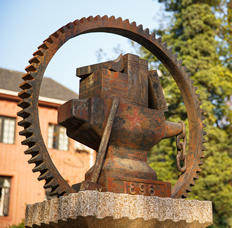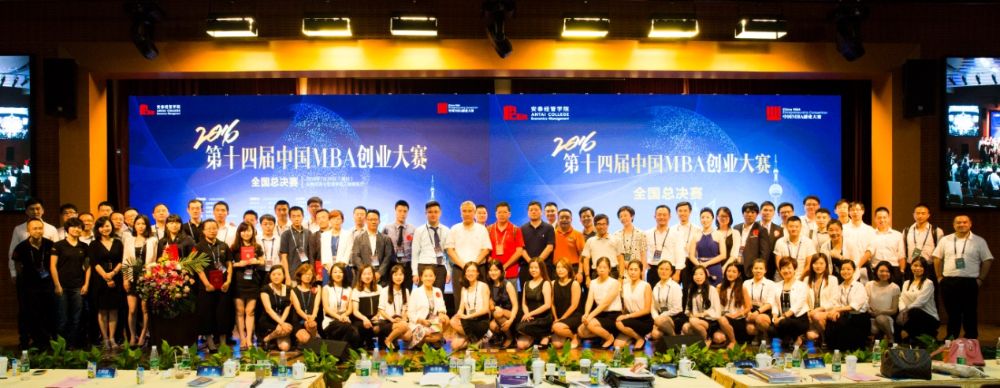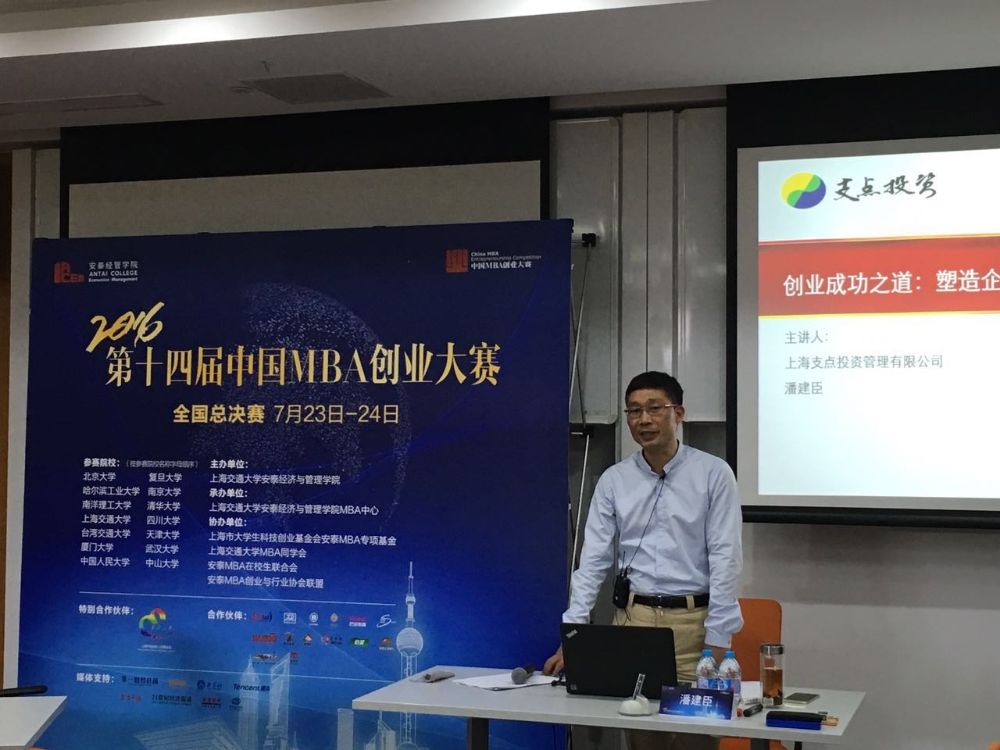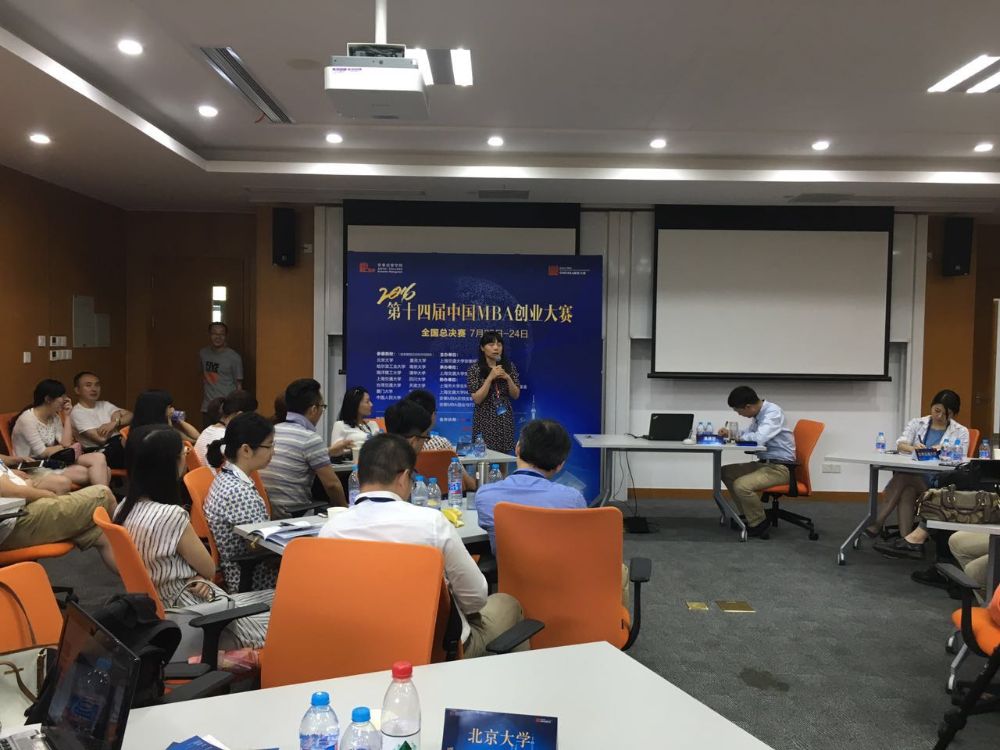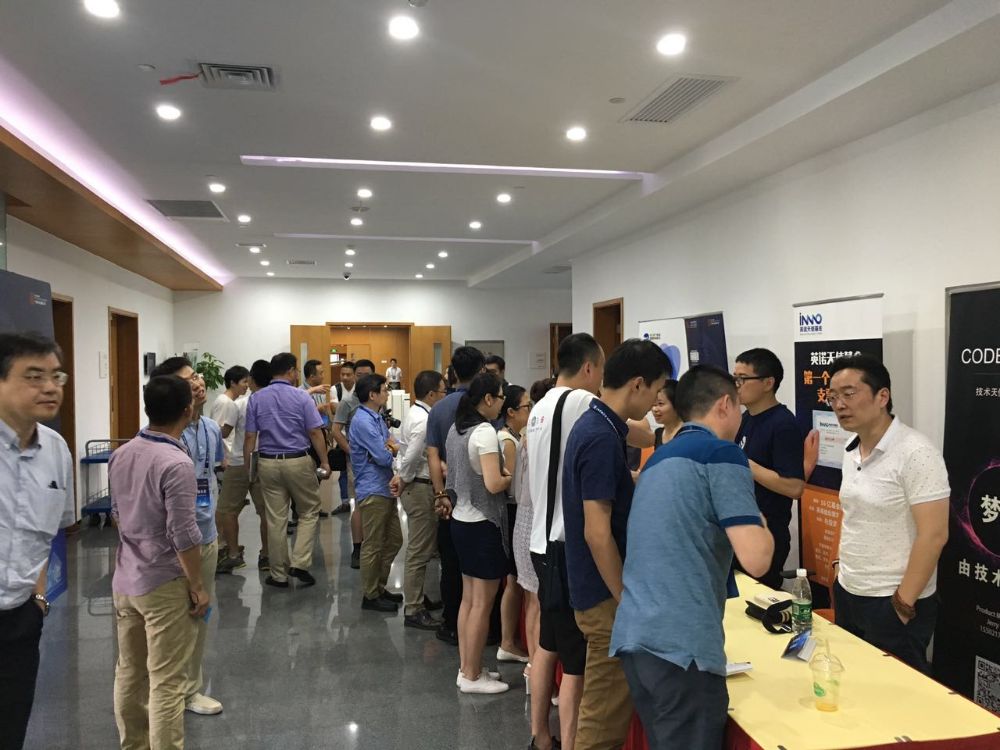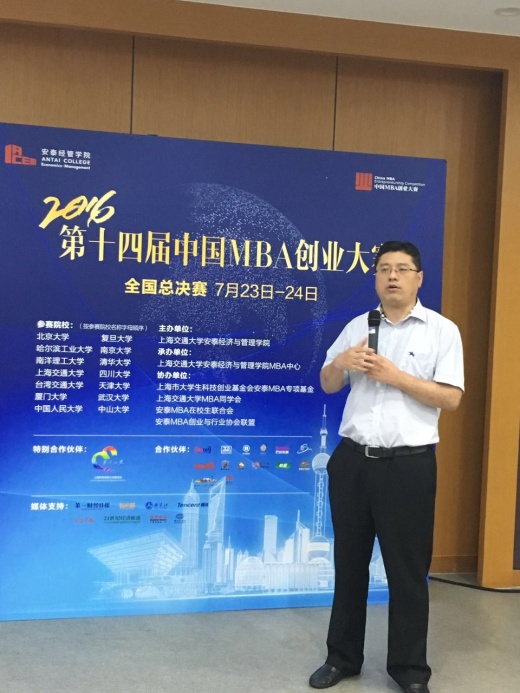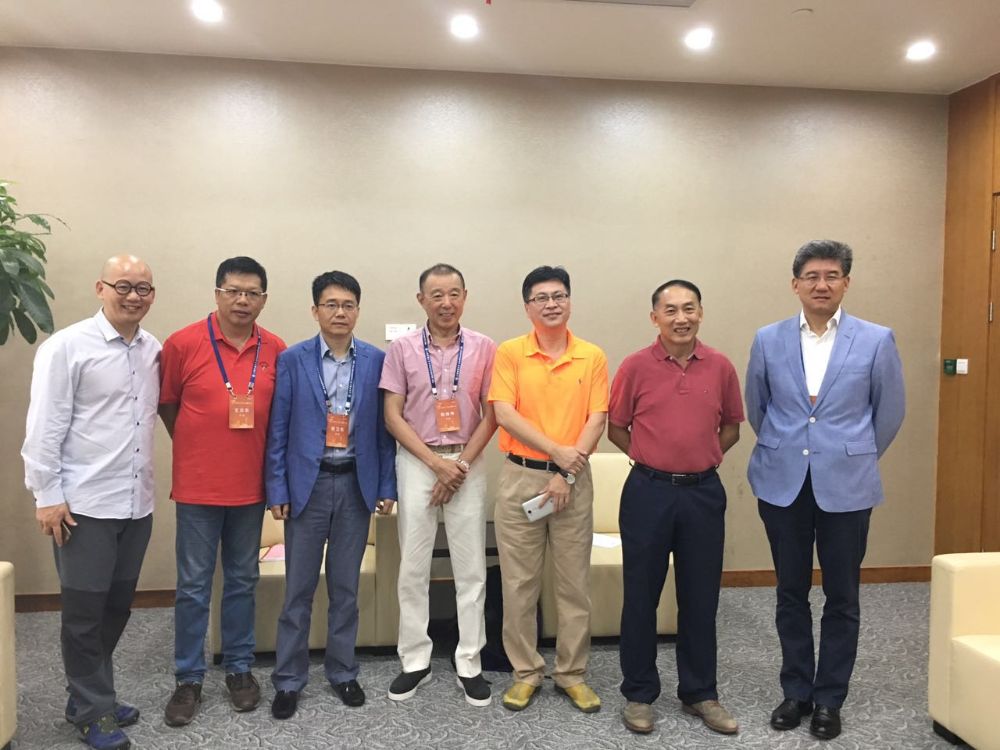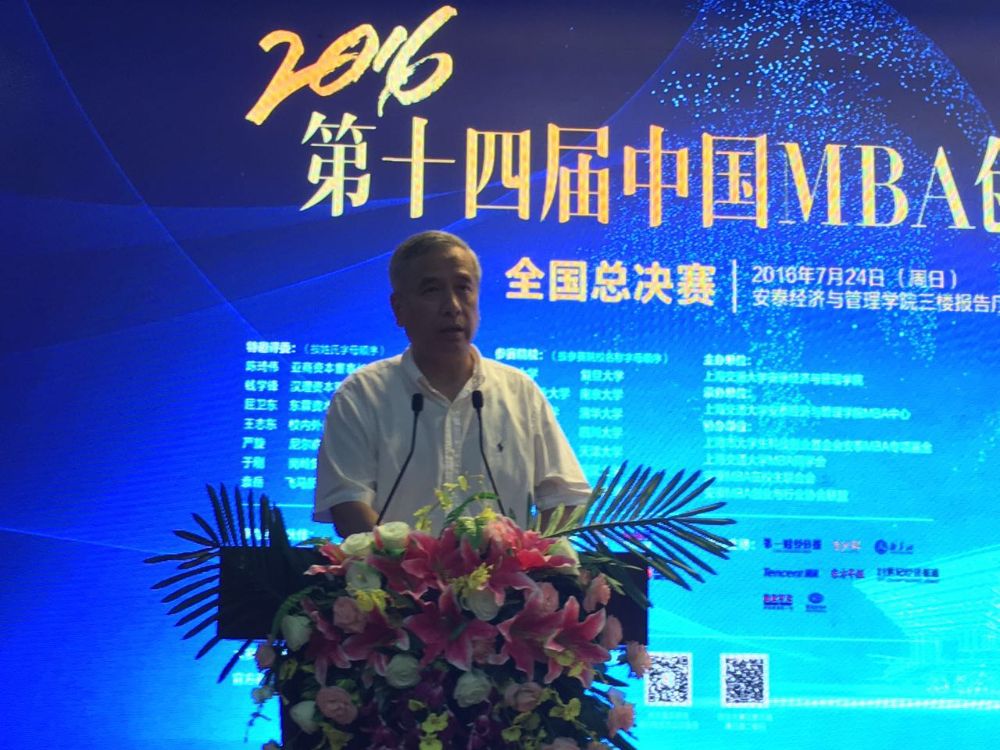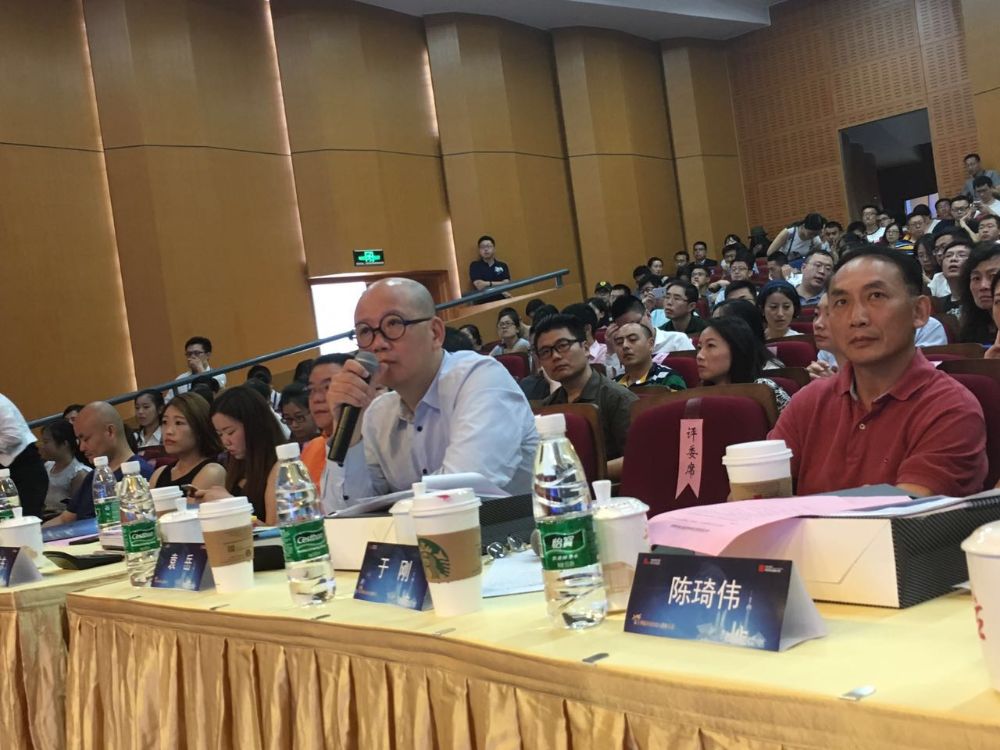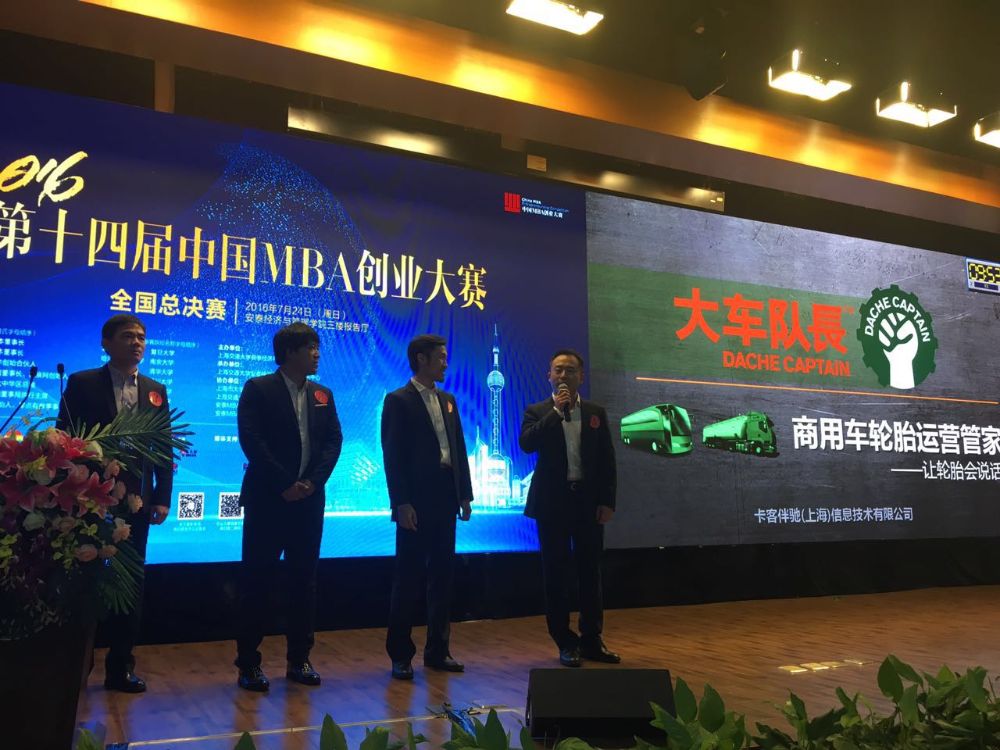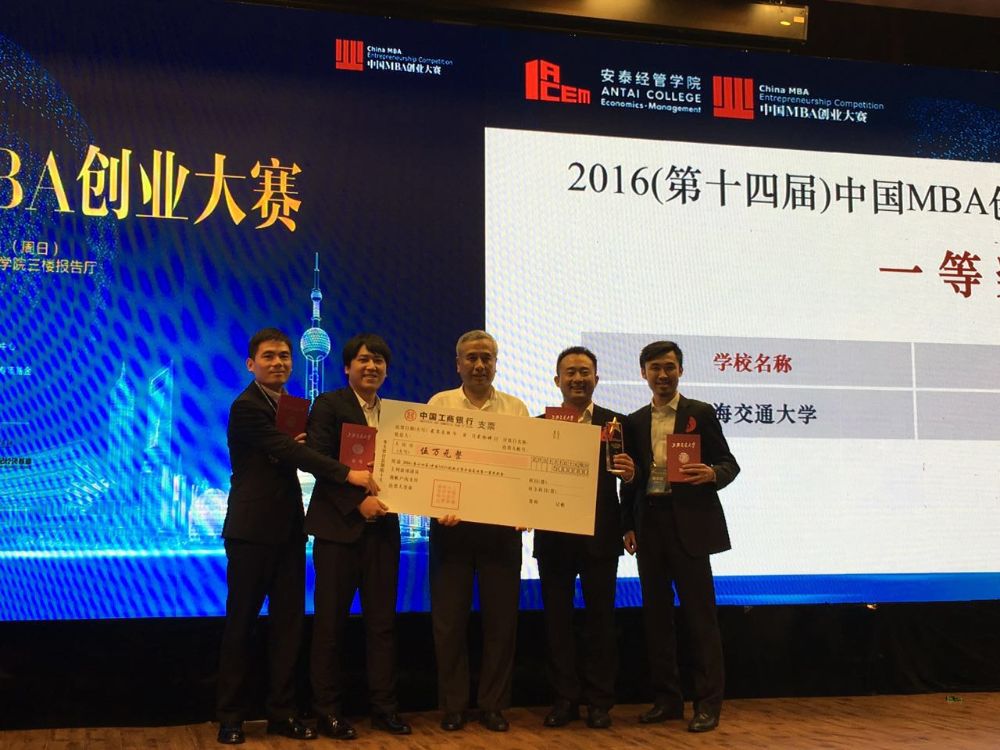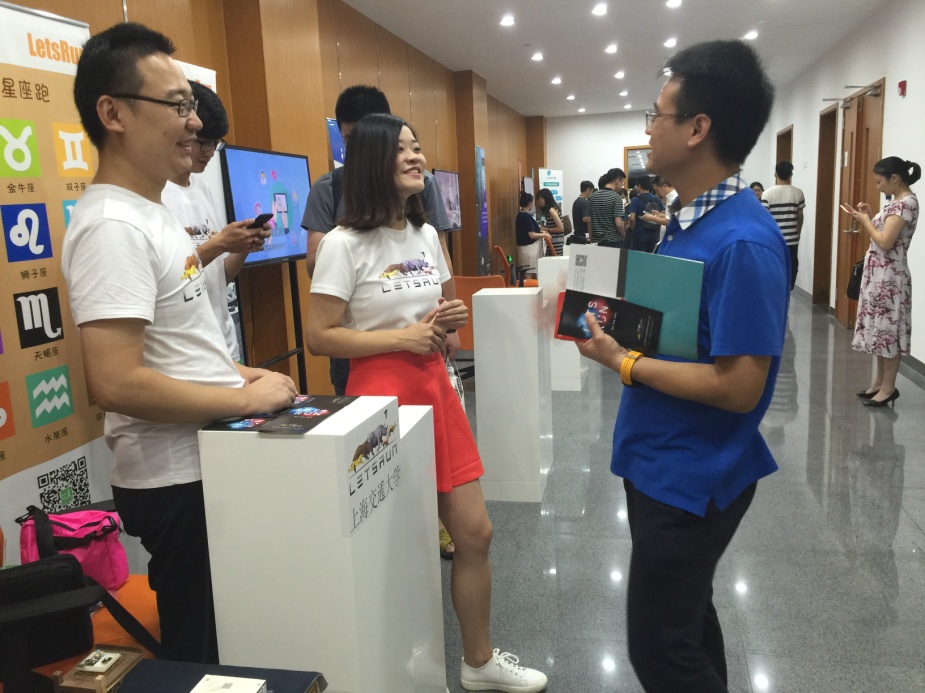Hi-Tec and Healthcare Hot Among Young Entrepreneurs
Publisher : MBA Office Jul.25,2016
National final of the 14th China MBA Entrepreneurship Competition finished in Antai College of Economics and Management (ACEM) on Jul 24. Among the 14 competing teams from China mainland, Taiwan and Singapore, Hi-Tec and healthcare became popular choices for these next-generation entrepreneurs.
Winner of the first prize, the ‘Captain Da Che (大车队长)’ project devised by students from Shanghai Jiao Tong University, uses smart sensors to monitor tyre usage on trucks, prolonging their service life and preventing dangerous blowouts.
Tianjin University’s ‘Smart Sensors for Complicated Environments’ was awarded the second place. This program develops patented wireless passive sensors to solve complex wire arrangement issues in power grids and communication systems, which bodes the potential of turning into a billion dollar business if marketed successfully.
The third prize was shared among Sichuan University’s ‘Dr. Ma Urine Analysis Box’ (马医生) which uses remote technology to detect illness, Renmin University of China’s Smart Gas Network and Fudan University’s elderly-catering app ‘Cuncaoxin’ (寸草心).
Tsinghua University’s child fitness monitoring kit ‘Fitkid’, Nanjing University’s BabyCare instrument which helps to check new born jaundice and Taiwan National Chiao Tung University’s NeuroCap Imaging projects also feature high technology and the Internet of things.
Another project worth noting in particular is Yongyi (用艺), an e-platform for showcasing intangible cultural heritage in China and enabling arts and crafts people to promote their products online.
Verdict of the Jury
The seven member jury formed of prominent investors and successful businessmen - Founding Partner and Chairman of ABC Capital Chen Qiwei, New Access Capital Chairman Qian Xuefeng, Founder of Donglin Capital Qu Weidong, Chairman of school-parents communication platform XNW.com Wang Zhidong, Nielsen Greater China President Yan Xuan, former Yihaodian Chairman Yu Gang and leading pollster Horizon Research President Yuan Yue - selected the prize winners based on project creativity, overall team strength and performance on stage.
The jury spoke highly of all the projects, praising their quality and maturity. Several projects generated considerable interest from investors and some have already reached Pre-A or even A round of venture capital financing.
However jury members also pointed out some weaknesses - some teams lack a clear business strategy, while others need to significantly improve their presentation skills if they want to give their ideas a real chance.
Apart from continuing academic entrepreneurship education in business schools and putting more resources in gaining start-up experience in such competitions, they suggest combining advanced technology with sound business model, and go all in once you’ve made up your mind. A culture of wolf instinct is also required to survive the brutal market competition.
Platform for Students
Founded by ACEM in 2002, the annual MBA Entrepreneurship Competition now draws hundreds of teams from dozens of business schools every year.
In the past decade, it has developed into a highly-regarded contest for MBA students in China mainland, Hong Kong, Macau and Taiwan, and a platform for showcasing achievements and sharing experiences in innovation and entrepreneurship education.
This year’s event saw participants from top-20 mainland business schools and celebrated institutions from Taiwan and Singapore, with China’s prestigious Fudan University and Singapore’s top-ranking Nanyang Technological University both being first-time entrants.
‘Thanks to the effort of the organisers, and the Entrepreneurship and Innovation by All strategy adopted by the central government, quality of participating projects of the China MBA Entrepreneurship Competition is getting better by the year.
‘ACEM is looking forward to further strengthening cooperation with fellow institutions and different sectors of society, pooling resources together and turning the competition into a stage for MBA innovation and entrepreneurship education in China and Asia,’ said ACEM Dean Zhou Lin during the opening ceremony.
Finding the Next Star
On Jul 23, the day prior to the competition, the traditional entrepreneurial training camp was held, which enhances the team’s entrepreneurial thinking, analyses their business models and polishes their presentation skills through intensive drilling and tailored consultation.
It also promotes communication between contending teams and connects start-up projects with potential investors.
Chairman Pan Jiancheng of Shanghai-based Pivot PE, a company notable for early-stage investment and start-up rearing served as tutor of the camp. A four-time veteran collaborator of the competition, Mr. Pan joined the students via WeChat as early as a week before the event, listening to each projects carefully and issuing timely guidance.
Speaking at the camp, Mr. Pan asked students to think about what is the core competence of a start-up, and how to build up the core competence of their own fledgling firms based on legal and finance, technology and production, business model and cost control, corporate culture development and personal qualities of the founder. He also offered valuable last-minute suggestions to all participating teams.
A series of display stands were also put up for the first time this year just outside the event hall, where seven companies from past competitions exhibited their products and presented their brands to audience, investors and journalists, promoting them to the general public and increasing their opportunities for fund raising.
Well-known angel investors such as CID Group, Innovation Angel Fund and Shanghai Technology Entrepreneurship Foundation for Graduates also set up stands on site, getting in touch with participating students, exploring financing opportunities and putting forward ideas for future development.
In cooperation with Butel.com, the competition was live broadcasted online and was watched by 76,000 people.
The competition was sponsored by Shanghai Dreams Come True Commonweal Foundation, a non-profit organisation dedicated to improving education, as well as other corporate sponsors.


